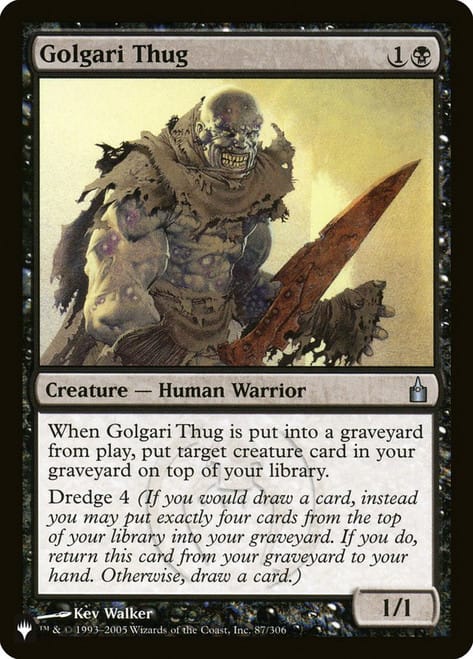7DRL25 Postmortem Series: Nominal Inertia
This will be a series of shorter posts on topics we found interesting in hindsight after this year's 7DRL. It might be all over the place.
Here's a new term for ya: nominal inertia! Except if you're an economy buff, it seems, in which case you know it and it has some... nominal inertia! In my case, this would be the amount of expectation and innate understanding (which might be wrong) behind a name we decide to use. Fighting nominal inertia leads to confusing situations where things are called one thing but do another (looking at you, Warhammer40k "Wounds") or downright misnomers that no one can remember. Here's a good example of low inertia:
Epic (For the rest of the game, you can't cast spells. At the beginning of each of your upkeeps, copy this spell except for its epic ability. You may choose new targets for the copy.)
And here's a good example of good inertia:
Haste (A creature with haste can attack and tap as soon as it comes under your control.)
It's not about the length, here's an example of a longer ability that still has somewhat high inertia, although it is starting to fall off.
Persist (When this creature dies, if it had no -1/-1 counters on it, return it to the battlefield under its owner’s control with a -1/-1 counter on it.)
This ability explicitly contains the phrasing "when this creature dies", and "return it to the battlefield"! Maybe it didn't persist but... Survive? Resurrect? Comeback?
Names can be impeded by limited narrative context, as is the example with the following:
Dredge N (If you would draw a card, instead you may put N cards from the top of your library into your graveyard. If you do, return this card from your graveyard to your hand.)
Players weren't connecting dredging to the creatures that had this ability. I might understand why I might be dredging up crustaceans, or even some abominations that fell into the endless sewers of Magic's then-current realm. But consider this one:

Why is this thug exactly Dredgeable? The reason exists, but it isn't in the card. It's hard to tell how exactly this connects and then you don't remember to dredge when able. The inertia is weak, there's no pull back from the name to the effect.
All of these examples are from Magic: the Gathering. It doesn't matter whether these are well-designed or badly designed abilities, it's not about the investigation of the game's rules. It's about what that first word tells you. Names are there to inform us of how a wider context attaches to the thing being named. If misplaced, they can spell doom (like with Epic), but even if the name is well-placed, the name can be too strong for the context. For example...
Indestructible (Damage and effects that say "destroy" don’t destroy this.)
Okay, great! Well-placed name. Very strong. Indestructible. Feels strong. My 2/2 creature is now indestructible. I feel safe. What's that? You give my creature -2/-2 until end of turn? Well that's surely okay, it can literally not be destroyed.
Indeed, the creature would die from the -2/-2 effect. The reason is that -2/-2 doesn't destroy it, but rather causes it to die. This is the kind of thing for which you'll just hear someone yell "bullshit!" and leave the table. Nominal inertia pulls hard. It's there to support the player's understanding, but you should do a lot of testing to be sure that the players don't have differing understandings already. That's why we're not talking about nominal force, but rather inertia. A good name already expects you to be in motion, and it needs you to be well-aligned.
Soft Magic
This topic came about as we were thinking of how to navigate making soft magic in Beneath the Throne. Soft, in this regard, means...
[g]overned by the fluid, ambiguous nature of its rules—if they even exist. Instead of explicit definitions, it thrives on a sense of wonder and the unknown.
We didn't want to have abilities that cost a number of points, or some resource; that you have full control over and that will serve you towards your goal. We went with something softer indeed: you get a word and the magic hides in the nominal inertia. If you had just collected the word Light, what would you now expect is different? How would you think it affects you? Does it expand your sight? Are things more bright and burning more strongly? Are enemies afraid to step towards you? It might be all three of these and more, and we'll never really tell you. You can notice that something is different, that you're doing better but you can't count on it. In lieu of control, people create rituals. Nominal inertia pushes us towards true magical thinking, wherein repetitions of the things that keep us in life cause us to stay alive again. I made this game, and yet I still think that moving one step left, then two right, then two left, and so on accelerates healing. I won't stop doing it just because you correctly state that that's not in the code, even more interestingly! I believe in magic, I guess. If that magic then also happens, most of the time, we have a connection and the player feels like they're learning.
One consequence of soft magic that I didn't notice up front was that you don't talk about soft magic. You, as a designer, shouldn't correct it. It is what it is, even if you didn't make it that way. If you correct it, the players will start searching for rules again, meaning that the magic stiffens. Truth, in a way, stiffens magic. Now that's quite a conclusion.